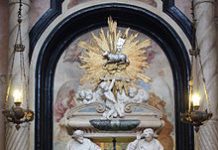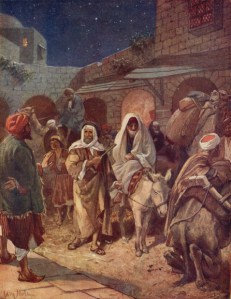Today we are celebrating the Feast of the Epiphany. As we know, etymologically the word epiphany is derived from the Greek term epiphaneia, which means “manifestation”. Thus, in this feast Christ Child reveals himself to all people as represented by the “wise men from the East” who came to visit him. The Matthean account of the story is replete with deep spiritual theology about this important event in Christ’s life on earth.
God’s greatness is always shown in vulnerability. He not only uses vulnerable people to convey his message but also He himself makes himself vulnerable in becoming a human being for us. Can you imagine that the Almighty God is hidden behind an infant whose tiny fingers and toes as well as his cries seek his mother and our attention? What an infinite richness this mystery is that the Omnipotent God lowers himself so much as to become one of us to save us in and through our being human, save of course sin! The Johannine affirmation that the Word became flesh and dwelt among us (John 1:14), is so incredibly true!
Obviously the saints, guided by the Holy Spirit, could see in this great mystery, that Christ the Child is, in fact, full of grace and truth (John 1:14). In their writings we could detect what St John the Evangelist wrote within the same line we are constantly referring to: We have beheld his glory, glory as of the only Son from the Father (John 1:14). When we read their reflections on Epiphany we are immediately drawn to see the Holy Infant’s glory as that of the only Son of the Father. That is why it is so important to keep returning to these reflections in order to contemplate this unfathomable mystery and draw the necessary energy to live our lives, in this troubled world, with the great joy and hope of the incarnation of the Son of God made man for us.
St Bernard of Clairvaux reminds us that Epiphany makes us fools for the worldly mentality in order to enter the saving life it profusely gives. What are you doing, O Magi? Do you adore a little Babe, in a wretched hovel, wrapped in miserable rags? Can this Child be truly God? … Are you becoming foolish, O Wise Men … Yes, these Wise Men have become fools that they may be wise.
Moreover, the solemnity of Epiphany calls to our attention three gifts Jesus gives us when we approach him with an open heart. These gifts, according to St Alphonsus Liguori, are his love, prayer and self-denial. These gifts help you and me to be faithful to Our Lord till the end. He writes: Give me, therefore, I pray Thee, this gold, this incense, and this myrrh. Give me the gold of Thy holy love; give me the spirit of holy prayer, give me the desire and strength to mortify myself in everything that displeases Thee. I am resolved to obey Thee and to love Thee; but Thou knowest my weakness, oh, give me the grace to be faithful to Thee!
For St John Chrysostom, Epiphany shows us the tripartite character of Christ Child as King, God and Man. He says: For by gold the power of a king is signified, by frankincense the honor of God, by myrrh the burial of the body; and accordingly they offer Him gold as King, frankincense as God, myrrh as Man.
Fourthly, Epiphany is a gracious exchange between heaven and earth. In order for us to fully appreciate this magnificent wonder we have to step in faith. Only the latter can actually help us to savour Epiphany thoroughly and benefit from its saving power. St Peter Chrysologus tells us: Today the Magi gaze in deep wonder at what they see: heaven on earth, earth in heaven, man in God, God in man, one whom the whole universe cannot contain now enclosed in a tiny body. As they look, they believe and do not question, as their symbolic gifts bear witness: incense for God, gold for a king, myrrh for one who is to die.
Finally, Epiphany highlights God’s full trust in our world as well as in a woman, Mary of Nazareth. St Augustine observes: Truth, by which the world is held together, has sprung from the earth, in order to be carried in a woman’s arms.
To conclude, this great feast helps us more and more reach the wounded, the vulnerable and all those who suffer. Regarding this point Pope Francis said during his homily on the Solemnity of the Epiphany of the Lord on Friary, 6 January 2017: God wanted to be born where we least expected, or perhaps desired, in a place where we so often refuse him: to realize that in God’s eyes there is always room for those who are wounded, weary, mistreated and abandoned.
May the Saints’ intercession keep leading us to search and find him in the suffering ones as he told us in St Matthew’s Gospel chapter 25. Amen.











